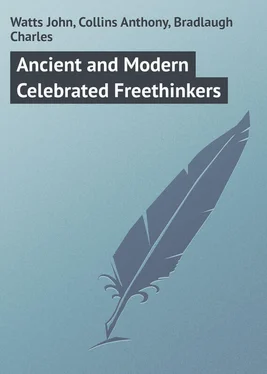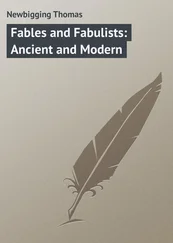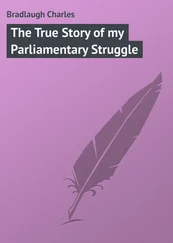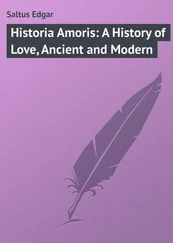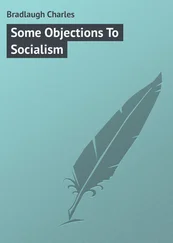Charles Bradlaugh - Ancient and Modern Celebrated Freethinkers
Здесь есть возможность читать онлайн «Charles Bradlaugh - Ancient and Modern Celebrated Freethinkers» — ознакомительный отрывок электронной книги совершенно бесплатно, а после прочтения отрывка купить полную версию. В некоторых случаях можно слушать аудио, скачать через торрент в формате fb2 и присутствует краткое содержание. ISBN: , Жанр: foreign_language, foreign_prose, на английском языке. Описание произведения, (предисловие) а так же отзывы посетителей доступны на портале библиотеки ЛибКат.
- Название:Ancient and Modern Celebrated Freethinkers
- Автор:
- Жанр:
- Год:неизвестен
- ISBN:http://www.gutenberg.org/ebooks/30200
- Рейтинг книги:5 / 5. Голосов: 1
-
Избранное:Добавить в избранное
- Отзывы:
-
Ваша оценка:
- 100
- 1
- 2
- 3
- 4
- 5
Ancient and Modern Celebrated Freethinkers: краткое содержание, описание и аннотация
Предлагаем к чтению аннотацию, описание, краткое содержание или предисловие (зависит от того, что написал сам автор книги «Ancient and Modern Celebrated Freethinkers»). Если вы не нашли необходимую информацию о книге — напишите в комментариях, мы постараемся отыскать её.
Ancient and Modern Celebrated Freethinkers — читать онлайн ознакомительный отрывок
Ниже представлен текст книги, разбитый по страницам. Система сохранения места последней прочитанной страницы, позволяет с удобством читать онлайн бесплатно книгу «Ancient and Modern Celebrated Freethinkers», без необходимости каждый раз заново искать на чём Вы остановились. Поставьте закладку, и сможете в любой момент перейти на страницу, на которой закончили чтение.
Интервал:
Закладка:
"In pride, in reasoning pride our error lies."
This is a corollary to the first proposition, "What can we reason but from what we know?" The only predicate we can draw from this is, the undoubted fact we have no right to profess to hold opinions of that, upon which we cannot have any positive proof. The last line of the first book has been generally thought open to attack. It relates to necessity – "Whatever is, is right" – and is not to be viewed in relation to society as at present constituted, but to the physical universe.
The second book deals with man in relation to himself as an individual; the third as a member of society, and the last in respect to happiness. Throughout the whole Essay the distinctions arising from nature and instinct are defined and defended with vigor and acuteness. Both are proved to be equally great in degree, in spite of the hints constantly thrown out in reference to "God-like Reason versus Blind Instinct." We confess our inability to discern the vaunted superiority of the powers of reason over those of its blinder sister. We see in the one matchless wisdom – profound decision – unfailing resource – a happy contentment as unfeigned as it is natural. On the other hand, we see temerity allied with cowardice – a man seeking wisdom on a watery plank, when every footmark may serve him for a funeral effigy; political duplicity arising from his confined generalization of facts; a desire to do right, but checked by accident and cunning – everywhere uneasy – always fatal. If the Christians' fables were true, we might say that Adam and Eve were originally in possession of Instinct and Reason, and fell by listening to the promptings of volition, instead of the unswerving powers of the brutes, and for a hereditary punishment was cursed with a superabundance of reason. For with all our intellectual prerogatives, we have yet failed to arrive at a definite course of action which should influence our conduct. The Essay, speaking of Government by Christianity, says: —
"Force first made conquest, and that conquest law,
Till superstition taught the tyrant awe.
She taught the weak to bend, the proud to pray,
To power unseen, and mightier far than they:
She, from the rending earth and bursting skies,
Saw Gods descend and fiends infernal rise.
Here fixed the dreadful, there the blessed abodes,
Here made her devils, and weak hope her Gods.
Gods partial, changeful, passionate, unjust ,
Whose attributes were rage, revenge, or lust .
Such as the souls of cowards might conceive,
And formed like tyrants; tyrants would believe.
Zeal then, not charity, became the guide,
And Hell was built in spite , and Heaven in pride."
And again —
"For modes of faith let graceless zealots fight,
His can't be wrong whose life is in the right."
The Essay concludes with an invocation to Bolingbroke – whom Pope styles, "my guide, philosopher, and friend." Such is the conclusion of the most remarkable ethical poem in any language. It is the Iliad of English Deism. Not a single allusion to Christ – a future state of existence given only as a faint probability – the whole artificial state of society satirized – prayer ridiculed, and government of every kind denounced which does not bring happiness to the people. The first principle laid down is the corner-stone of materialism – "What can we reason but from what we know?" – which is stated, explained, and defended with an axiomatic brevity rarely equalled, never surpassed – with a number of illustrations comprising the chef d'oeuvre of poetic grace, and synthical melody combined with arguments as cogent as the examples are perfect.
It stands alone in its impregnability – a pile of literary architecture like the "Novum Organan" of Bacon, the "Principia" of Newton, or the Essay of Locke. The facades of its noble colonnades are seen extending their wings through the whole sweep of history, constituting a pantheon of morals, where every nation sends its devotees to admire and worship.
Let us now turn to the philosophical works of Bolingbroke. By the will of Bolingbroke he devised this portion of his manuscripts to David Mallet, the poet, for publication. The noble Lord's choice is open to censure here. He knew the character of Mallet, and could expect little justice from him who should have been his biographer. The MSS. were all prepared for the press long before Bolingbroke died. In this original state, they were addressed to Pope. When published they appeared as "Letters or Essays addressed to Alexander Pope, Esq." The political friends of St. John wished their suppression, fearing that they would injure his reputation by being anti-Christian. A large bribe was offered by Lord Cornbur if Mallet would destroy the works. He, no doubt, thinking more money could be made by their publication, issued them to the world in 1754, but without giving a biography or notes to the books, his work being simply correcting the errors of the press. True, there existed no stipulation that he should write the Life of Bolingbroke, but no one can doubt that such was the intention of the statesman, when he bequeathed to him property which realized £10,000 in value. Every one knows the huge witticism of Dr. Johnson, who accused Bolingbroke of cowardice, under the simile of loading a blunderbuss, and then leaving a Scotchman half-a-crown to fire it when he was out of the way. When those posthumous works appeared, the grand jury of Westminster presented them to the judicial authorities as subversive of religion, morality, and government. They were burnt by the common hangman.
With difficulty we give a quotation from Boling-broke's ideas of a Future Life. In vol. IV., p. 348, he says, "I do not say, that to believe in a future state is to believe in a vulgar error; but this I say, it cannot be demonstrated by reason: it is not in the nature of it capable of demonstration, and no one ever returned that irremediable way to give us an assurance of the fact."
Again, he speaks personally in reference to himself, Pope, and Wollaston, whom he had been opposing: —
"He alone is happy, and he 'is truly so, who can say,
Welcome life whatever it brings!
Welcome death whatever it is!
If the former, – we change our state.
That you, or I, or even Wollaston himself, should return to the earth from whence we came, to the dirt under our feet, or be mingled with the ashes of those herbs and plants from which we drew nutrition whilst we lived, does not seem any indignity offered to our nature, since it is common to all the animal kind: and he who complains of it as such, does not seem to have been set, by his reasoning faculties, so far above them in life; as to deserve not to be levelled with them at death. We were like them before our birth, that is nothing. So we shall be on this hypothesis, like them too after our death, that is nothing. What hardship is done us? Unless it be a hardship, that we are not immortal because we wish to be so, and flatter ourselves with that expectation.
"If this hypothesis were true, which I am far from assuming, I should have no reason to complain, though having tasted existence, I might abhor non-entity. Since, then, the first cannot be demonstrated by reason, nor the second be reconciled to my inward sentiment, let me take refuge in resignation at the last, as in every other act of my life: let others be solicitous about their future state, and frighten or flatter themselves as prejudice, imaginative bad health – nay, a lowering day, or a clear sunshine shall inspire them to do: let the tranquillity of my mind rest on this immovable rock, that my future, as well as my present state, are ordered by an Almighty Creator, and that they are equally foolish, and presumptuous, who make imaginary excursions into futurity, and who complain of the present."
Читать дальшеИнтервал:
Закладка:
Похожие книги на «Ancient and Modern Celebrated Freethinkers»
Представляем Вашему вниманию похожие книги на «Ancient and Modern Celebrated Freethinkers» списком для выбора. Мы отобрали схожую по названию и смыслу литературу в надежде предоставить читателям больше вариантов отыскать новые, интересные, ещё непрочитанные произведения.
Обсуждение, отзывы о книге «Ancient and Modern Celebrated Freethinkers» и просто собственные мнения читателей. Оставьте ваши комментарии, напишите, что Вы думаете о произведении, его смысле или главных героях. Укажите что конкретно понравилось, а что нет, и почему Вы так считаете.
